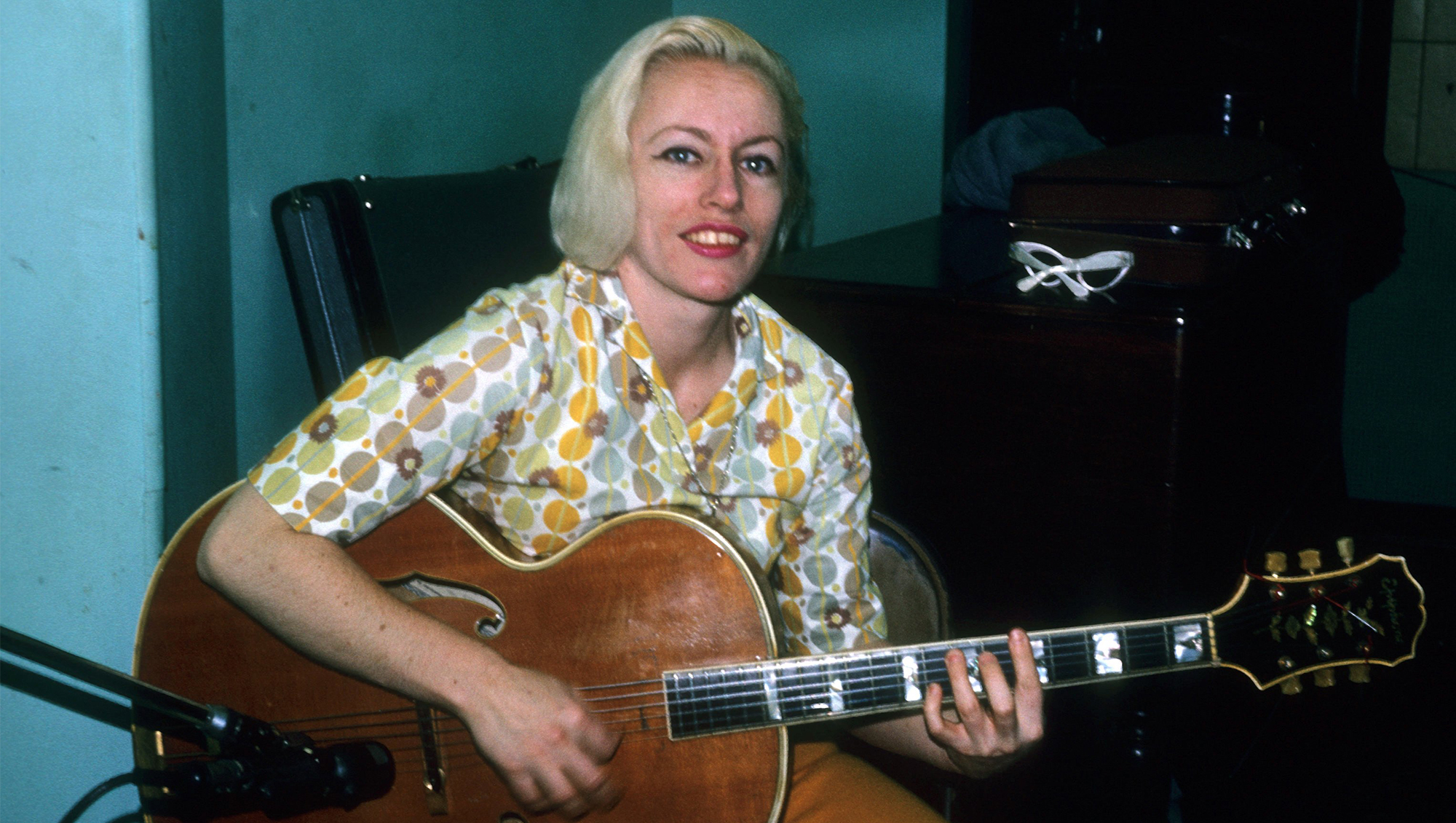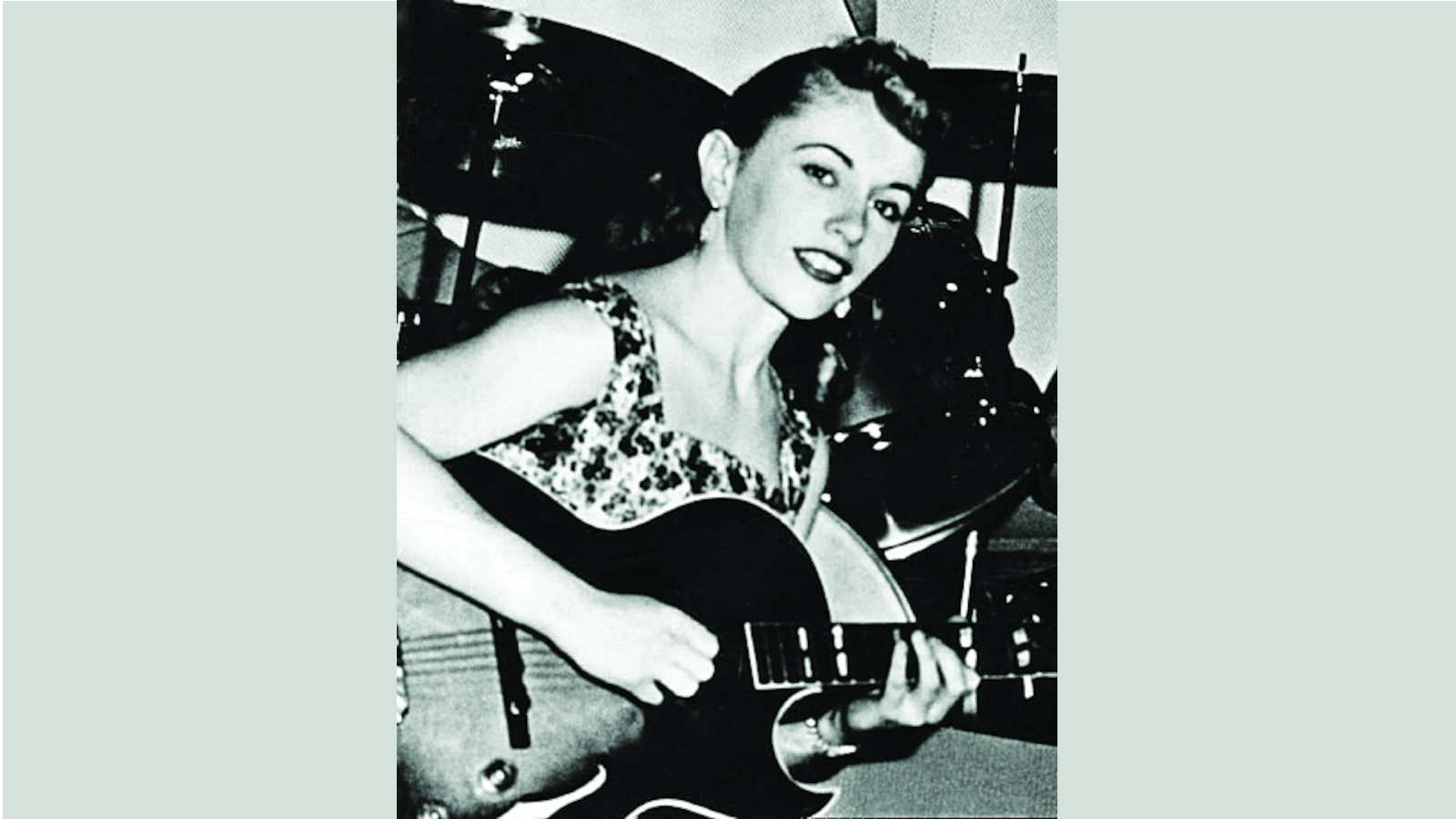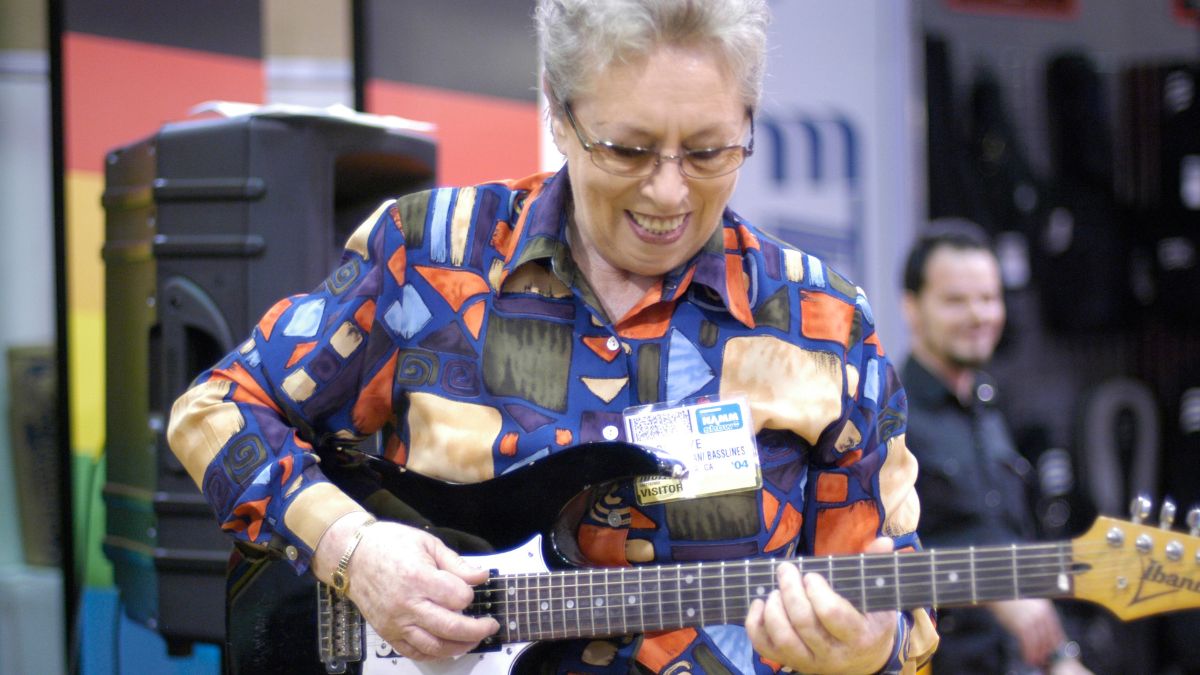"I was never a ‘Wrecker’ at all…. that’s a terrible insulting name.” Beach Boys bassist Carol Kaye dismisses Rock Hall induction as it goes against what she stands for
In a now-deleted Facebook post, she outlined her reasons for boycotting the ceremony later this year

All the latest guitar news, interviews, lessons, reviews, deals and more, direct to your inbox!
You are now subscribed
Your newsletter sign-up was successful
The Rock and Roll Hall of Fame is no stranger to high-profile snubs when announcing its latest class of inductees. Although this year’s contingent seems to be going some way to make amends for that, guitarist/bassist Carol Kaye has declined her invitation to the event on the grounds that it goes against the spirit of her life as a session musician.
The Rock Hall’s class of 2025 sees Soundgarden, eligible for the nod since 2012, finally getting the honor, alongside the mega-selling White Stripes, classic-rock underdogs Bad Company, and Kaye, one of the most prolific sessions musicians in the history of recording.
Since being drafted to play rhythm guitar on Sam Cooke’s interpretation of George Gershwin’s jazz standard “Summertime” in 1957, Kaye immersed herself in session work. She is estimated to have featured in over 10,000 recording sessions, becoming part of a contingent known as the Wrecking Crew, famed for its work on sessions by producer Phil Spector and the Beach Boys under the direction of the late Brian Wilson..
In addition, Kaye recorded for everyone from the Monkees and Ray Charles to Quincy Jones and father-daughter duo Frank and Nancy Sinatra. It’s perhaps because of her role as a background musician — a world away from the glitz and glamor of sold-out arenas and world tours — that the nod has come so deep into her career. Kaye is now 90 years old and has been at it for 65 years.
The accolade, though belated, could be viewed as recognition of the entire session musician scene, similar to Steve Cropper's 2004 induction. But in an impassioned rant on Facebook, Kaye made it clear she won’t be in attendance at the ceremony.
“People have been asking: no, I won’t be there,” her now-deleted post reads. She adds that she is “turning it down because it [isn’t] something that reflects the work that studio musicians do and did in the golden era of the 1960s recording hits.”
A post shared by Stereogum (@stereogum)
A photo posted by on
She’s also taken umbrage at the Wrecking Crew moniker. It referred to a loose collection of session musicians, from predominantly jazz and classical backgrounds, that first coalesced to form Spector’s house band. The name was an insult created by the previous generation's trained session artists, who saw the arrival of rock and roll as destructive to the industry.
All the latest guitar news, interviews, lessons, reviews, deals and more, direct to your inbox!
“You are always part of a team, not a solo artist at all,” she says. “There were always 350-400 studio musicians working in the busy 1960s, and called that only. Since the 1930s, I was never a ‘Wrecker’ at all…. that’s a terrible insulting name.”
Having started her musical career playing jazz clubs – the Sam Cooke gig opened her eyes to the fact that studio work was more sustainable — Kaye says she was “accidentally” transformed into a bassist after she picked up a Fender Precision in 1963 to fill in for a session player who never showed up.
“I never played bass in my life, but being an experienced recording guitarist, it was plain to see that three bass players hired to play ‘dum-de-dum’ on record dates wasn’t getting it,” Kaye ascertains. “It was easy for me to invent good bass lines… as a jazz musician, you invent every note you play.”
Her 2023 interview with Guitar Player begins by recognizing the irony that her reputation as a bassist precedes her preferred instrument: the electric guitar.
“It is funny,” she agreed, “because the people I work with in jazz often wonder whatever happened to that really fine jazz guitar player, Carol Kaye. They didn’t know about all the rock bass I did in the studio.”

Of her in-studio hit-making, she added, “Whenever we played our instruments, we all felt integrity. Some of the music was very boring, because it was so simple. But we played with integrity and tried to get everybody a hit record, in spite of themselves.
“Some of them didn’t know how to get a hit record, and we did, because that’s what we did in jazz.”
Brian Wilson's recent passing has helped shed a little more light on the work of the Wrecking Crew — even if Kaye cannot abide the name. Billy Strange and Tommy Tedesco were two of the crew, alongside Kaye, who rubbed shoulders with Wilson's mad genius. Above all, they say he had a knack for creating an environment in which every player could shine.

“When we got Billy Strange, Glen Campbell and Jerry Cole at the session, you couldn't hear yourself think,” Tedesco tells Guitar Player. “One would be playing loud, and the others would be showing off, trying to outdo each other. It was like World War III when those guys started playing.
“But with that many guitars, you knew where you belonged; we didn't have to be told. We'd always be trading ideas for parts and making suggestions to each other. And the respect in the business for the sound we got on those Beach Boys records just grew and grew.”
Soundgarden, meanwhile, are set to reform for the induction ceremony. Guitarist Kim Thayil believes it is important for Chris Cornell’s legacy.
A freelance writer with a penchant for music that gets weird, Phil is a regular contributor to Prog, Guitar World, and Total Guitar magazines and is especially keen on shining a light on unknown artists. Outside of the journalism realm, you can find him writing angular riffs in progressive metal band, Prognosis, in which he slings an 8-string Strandberg Boden Original, churning that low string through a variety of tunings. He's also a published author and is currently penning his debut novel which chucks fantasy, mythology and humanity into a great big melting pot.


